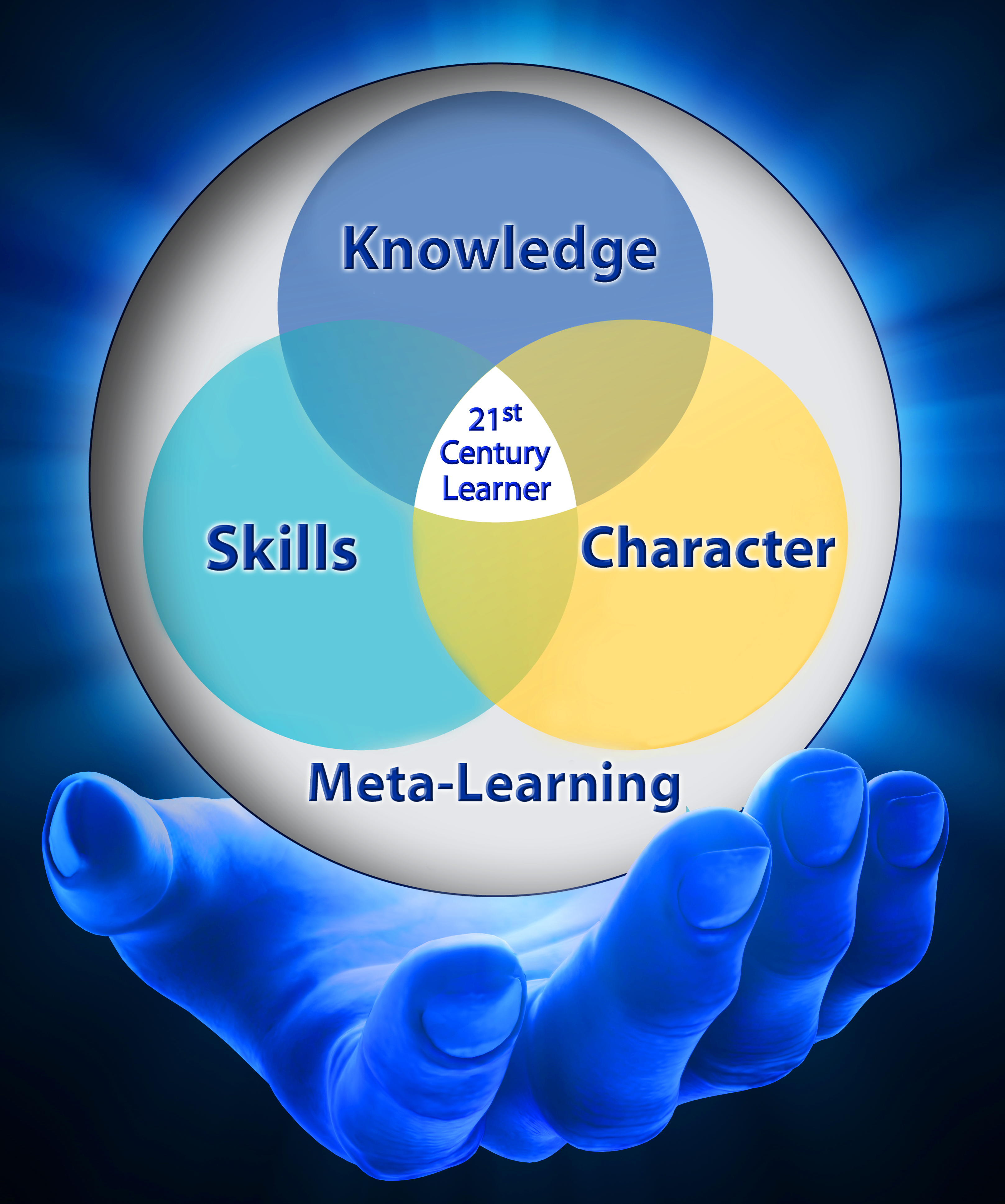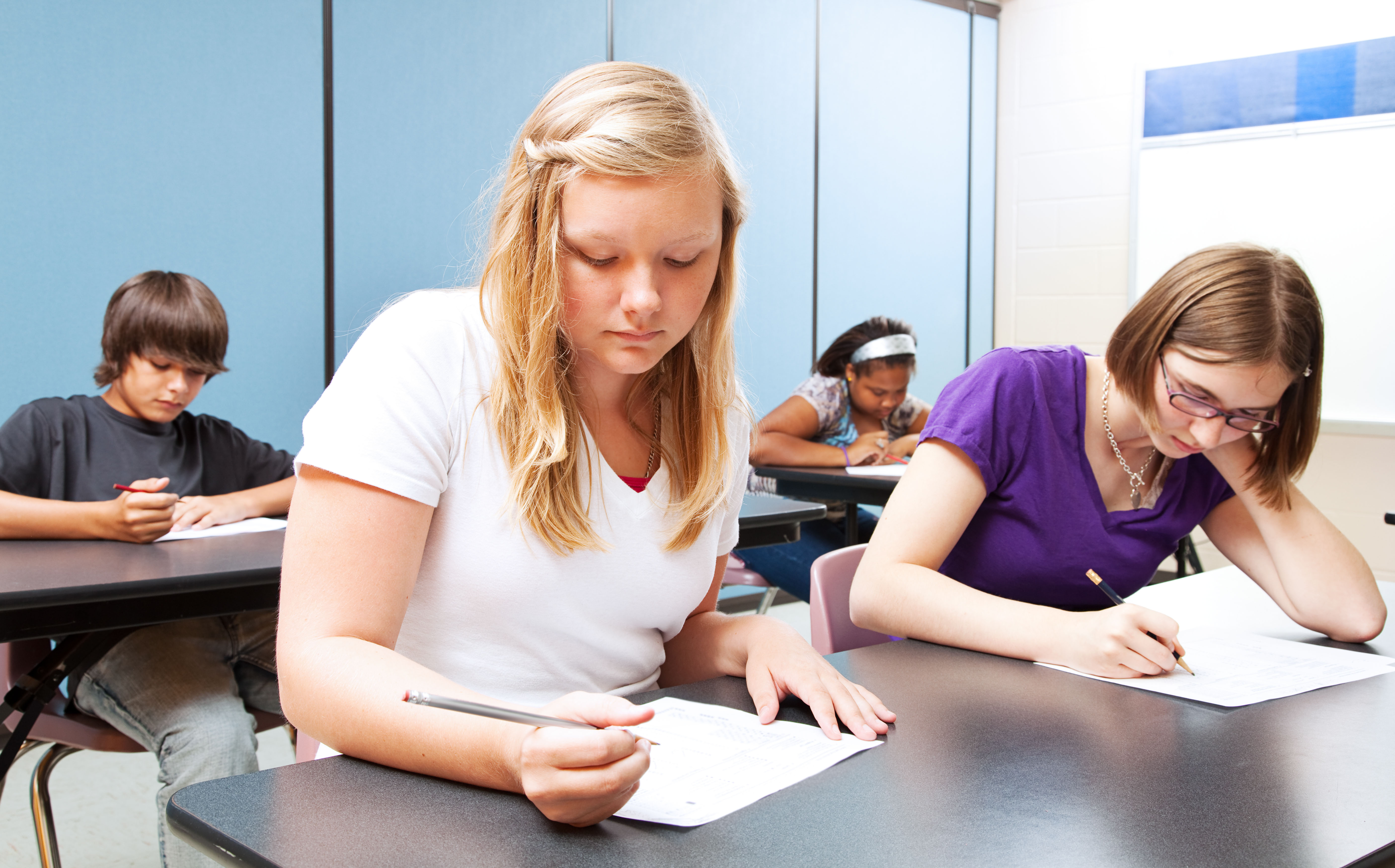
מגמות חינוך לעיצוב 2016 היא יצירת OECD חדשה ומעודכנת אשר בוחנת החברתיות גדולות, דמוגרפי, מגמות כלכליות וטכנולוגיות להשפיע על עתידה של ההשכלה. המהדורה הראשונה של הספר יצא לאור בשנת 2008 ושתי במהדורות הבאות פורסמו 2010 ו 2013. The 2016 edition has been extended to include new countries and emerging economies including Brazil, סין, India and the Russian Federation. The report covers all of education (early childhood through tertiary) and is intended for a broad audience including policy makers, מחנכים, מורים, הורים ותלמידים.
Author of the report and OECD Project Leader Tracey Burns joins us in גלובל החיפוש לחינוך
to discuss the big picture global changes and how they are shaping learning in our everyday world.
What are the greatest challenges we face in achieving the egalitarian ideals of education in a globalized setting that is becoming increasingly stratified?
The greatest challenge, in my mind, is rising inequality. In OECD countries, the gap between rich and poor is at its highest level in 30 שנים. Household debt has been rising, and youth are now at a greater risk of living in poverty than their older counterparts. This can lead to conflict and tension, particularly in diverse urban areas where the “other” (i.e. people from different racial and cultural backgrounds) becomes the target of discontent and the scapegoat for grievances. And new technologies are changing the game, for better or for worse. While they can and have been used to boost citizen engagement and empowerment (e.g, Occupy Wall Street, the Arab Spring), they also allow individuals and organisations to stay one step ahead of the law (e.g, terrorists using social media). יש הרבה לחץ דגש על חינוך לפעול כאחד המנופים העיקריים להקטנת אי השוויון, but it cannot act alone.

What do you see as the respective roles of educators, הורים, תלמידים, and citizens in overcoming this challenge?
שוב, although education has a powerful role to play in reducing disadvantage, policies that determine the level of taxation, government transfers and the structure of labor markets all need to be changed hand in hand with education policy in order to significantly reduce inequality. עם זאת, educators can take the lead in a number of ways, such as providing quality early childhood education and care, one of the big levers in reducing disadvantage. הורים, students and citizens can promote civic engagement and become more involved in education governance, pushing the system to do more to reach out to those most marginalised. They can play a unique role in holding the system accountable to broader societal goals, in addition to education ones. And everyone can be more aware of the importance of physical and emotional well-being starting at the youngest ages.
What kinds of skills or competencies should we be teaching to meet shifting labor needs?
Educators need to be aware of the advanced skills their students will need to flourish in more knowledge-intensive labor markets, without neglecting the development of other important competencies. These include 21st century skills such as global languages, advanced digital skills, and social and emotional intelligence. Education can also play a role in helping equal the playing field for women, closing the gender gap in the workforce and encouraging female entrepreneurship. It will also increasingly need to continue to re-skill aging workers through lifelong learning, as our populations stay active for longer. For tertiary institutions, it is important to support R&D, attract and retain the best researchers, and reinforce studies that require high levels of knowledge and skill, creativity and innovation more generally. עד לכאן, governments are also moving to streamline procedures required to start businesses, lightening the administrative load and incentivising entrepreneurship.

How can schools better prepare for the increasing numbers of immigrants from various cultures and socio-economic situations?
The most important step is to have a systemic vision. Across the OECD, students with an immigrant background tend to have less access to educational resources and their parents are less educated and work in lower-status occupations on average. כמובן, there are a lot of individual stories within these averages that are quite different, but the systemic element remains important. Decisions about funding and resources, school autonomy and school choice, לדוגמא, must also pay attention to equity and access to educational opportunities. Certain system level policies, such as grade repetition and early tracking, amplify socio-economic inequalities within a country whereas others, such as the expansion of pre-primary education, can help mitigate them. Education can provide training and language skills as well as transmit norms that can facilitate immigrants’ integration into labour markets and their adopted country. It can also teach all students – not just the new arrivals – about the importance of tolerance and the benefits of cultural diversity.
What role do you see education playing in the rise of megacities? How can we address individual learning needs and teacher recruitment issues that arise from quickly growing urban areas?
Education can and should be prepared to adjust and grow along with urban environments. Education can teach civic literacy, provide the skills needed for community engagement, and support creativity and innovation throughout the lifespan. Designing liveable urban spaces and encouraging smart transport in increasingly dense cities will require urban planners and engineers, as well as the research and innovation hubs needed to fuel their work. The provision of proper support systems for at-risk students can reduce instances of bullying within schools and decrease urban crime by keeping kids in school and out of trouble. Education will also need to be prepared for a number of trends that arise from increasing urbanisation, such as planning for increasing (or declining) neighbourhood populations, and protecting school buildings and infrastructure from extreme climate events, expected to disproportionally affect large urban centres. Education will also continue to be responsible for ensuring the safety of students and monitoring physical and emotional well-being in the face of potentially new or growing urban stresses. However we must be vigilant: disadvantaged urban schools are more likely to lack qualified teaching staff. Attracting and retaining qualified teachers and principals in disadvantaged urban schools is key. Training programmes, חונך, and on-going professional development all have a role to play.

A “green economy” may one day become less of an ideal than a necessity for the continued flourishing of our species. What can our educational systems do to foster the international co-operation required to devise a plan for coordinated action on global climate change, ecological disasters, and sustainable sources of energy?
Students must be taught the science and maths needed to understand the mechanisms underlying climate change. However this will not be enough: education systems need to create critical thinkers that are able to connect their daily decisions to long-term consequences – not just for themselves but for society as a whole. One way to do this is through engaging with complex, real world problems from very early on. נכון לעכשיו, students often spend time on highly structured tasks that do not leave much time for more creative activities where students can develop their critical thinking skills. בנוסף, the tertiary sector has a role to play in supporting green innovation, such as energy saving and environmental protection inventions, new energy technologies as well as low-carbon and resource-saving technologies helpful for green development.
As health and pension expenditures increase, national governments are expected to face increasingly tight budgets. How should we look to better finance education spending in the long-term?
על פני השטח, the more governments spend in areas such as healthcare and unemployment benefits, the less they have to support the education system. עם זאת, government policies in various sectors can play off one another in mutually beneficial ways. לדוגמא, greater military spending could help improve the quality of military academic programs, which could also enable more individuals from disadvantaged backgrounds to pursue their studies affordably. Alternatively, better education can reduce government spending in other areas. לדוגמא, teaching healthy habits in schools can play a role in reducing obesity rates and diabetes, lowering health care costs to governments and individuals. באופן דומה, improved life-long learning systems may be able to slow the development of dementia, one of the fastest growing causes of death in OECD countries. Finding these intra-governmental strategies is a good start to making the most of restricted public finances.
(Photos are courtesy of Shutterstock – Tania Kolinko, IOFoto and Bikerider London)


הצטרף אליי ולמנהיגי מחשבה מוכרת בעולם כולל סר מייקל ברבר (בריטניה), DR. מיכאל בלוק (ארה"ב), DR. ליאון בוטשטיין (ארה"ב), פרופסור קליי כריסטנסן (ארה"ב), DR. לינדה דרלינג-Hammond (ארה"ב), DR. MadhavChavan (הודו), פרופ 'מיכאל Fullan (קנדה), פרופ 'הווארד גרדנר (ארה"ב), פרופ 'אנדי הארגריבס (ארה"ב), פרופ 'איבון הלמן (הולנד), פרופ 'קריסטין Helstad (נורווגיה), ז'אן הנדריקסון (ארה"ב), פרופ 'רוז Hipkins (ניו זילנד), פרופ 'קורנליה הוגלנד (קנדה), הכבוד ג'ף ג'ונסון (קנדה), גברת. שנטל קאופמן (בלגיה), DR. EijaKauppinen (פינלנד), מזכיר המדינה TapioKosunen (פינלנד), פרופ 'דומיניק לפונטיין (בלגיה), פרופ 'יו לאודר (בריטניה), לורד קן מקדונלד (בריטניה), פרופ 'ג'ף מאסטרס (אוסטרליה), פרופ 'בארי McGaw (אוסטרליה), שיב נדאר (הודו), פרופ 'R. נטריגין (הודו), DR. PAK NG (סינגפור), DR. דניז אפיפיור (ארה"ב), שרידהר ךאג'גופלן (הודו), DR. דיאן ראוויטש (ארה"ב), ריצ'רד וילסון ריילי (ארה"ב), סר קן רובינסון (בריטניה), פרופ Pasi Sahlberg (פינלנד), פרופ Manabu סאטו (יפן), אנדריאס שלייכר (PISA, OECD), DR. אנתוני סלדון (בריטניה), DR. דוד שפר (ארה"ב), DR. קירסטן Immersive Are (נורווגיה), קנצלר סטיבן ספאן (ארה"ב), איב Theze (LyceeFrancais ארה"ב), פרופ 'צ'רלס Ungerleider (קנדה), פרופ 'טוני וגנר (ארה"ב), סר דייוויד ווטסון (בריטניה), פרופסור דילן Wiliam (בריטניה), DR. מארק Wormald (בריטניה), פרופ 'תיאו Wubbels (הולנד), פרופ 'מייקל יאנג (בריטניה), ופרופ 'Minxuan ג'אנג (סין) כפי שהם לחקור שאלות חינוך תמונה הגדולות שכל המדינות מתמודדות היום.
גלובל החיפוש לחינוך עמוד קהילה
C. M. רובין הוא המחבר שתי סדרות מקוונות רבים קוראות שלהיא קיבלה 2011 הפרס אפטון סינקלר, “גלובל החיפוש לחינוך” ו “איך וויל אנחנו קראו?” היא גם מחברם של שלושה ספרים רבי מכר, כולל אליס בארץ הפלאות Real, הוא המוציא לאור של CMRubinWorld, והוא משבש קרן עמית.
עקוב C. M. רובין בטוויטר: www.twitter.com/@cmrubinworld





תגובות אחרונות